















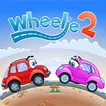


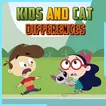









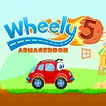







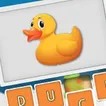












































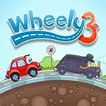









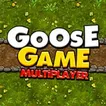












































































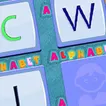












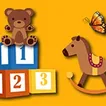
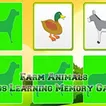



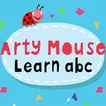

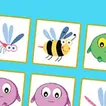































































Kids Games: A Guide to Educational and Fun Online Activities
In the digital era, the intersection of education and entertainment has found a vibrant space in online games for kids. These games are not just about passing time; they’re about enriching young minds while they have fun. The beauty of educational online activities lies in their ability to blend learning with play, ensuring that children remain engaged and absorb information more effectively.
The rise of educational gaming has transformed traditional learning methods, offering a dynamic alternative that caters to the diverse needs of children. These games cover a broad spectrum of subjects and skills, from language arts and mathematics to science and social studies. They are designed to stimulate young brains, encouraging critical thinking, problem-solving, and creativity.
Moreover, these games often come with varying levels of difficulty, which can be adjusted to match the child’s pace of learning. This personalized approach helps maintain a child’s interest and prevents frustration, making the learning process more enjoyable and effective.
The social aspect of these games cannot be overlooked either. Many online activities are designed to be collaborative, teaching children the value of teamwork and communication. This not only enhances their social skills but also prepares them for real-world interactions.
Educational games also serve an important role in developing computer literacy and digital navigation skills. As children interact with these games, they become more comfortable with technology, an essential skill in today’s tech-centric world.
In summary, educational online games for kids are a harmonious blend of fun and learning. They offer a platform where children can explore, learn, and grow, all within the safety and comfort of guided online environments. As we continue to embrace the digital age, these games stand as a testament to the potential of technology to positively influence childhood education.
Top Educational Games for Kids: Learning and Fun with PBS
PBS has emerged as a frontrunner in providing educational online games that strike an ideal balance between learning and enjoyment. These games are thoughtfully crafted to meet the developmental needs of children across various age groups. By integrating educational goals with compelling gameplay, PBS ensures that children are captivated while they learn.
The educational games offered by PBS cover a wide range of subjects, catering to the innate curiosity of children. They are designed to foster creativity, enhance STEM education, and build social skills through interactive play. This approach allows children to learn at their own pace in a stress-free environment, which is crucial for their cognitive and emotional development.
One of the key strengths of PBS’s educational games is their ability to adapt to the learning style of each child. Whether a child is a visual learner, an auditory learner, or a kinesthetic learner, there is a game that can cater to their preferences. This personalized learning experience is invaluable in keeping children engaged and motivated.
In addition to the educational benefits, these games also promote inclusivity, ensuring that children from all backgrounds can access and enjoy them. The variety of games available means that there is something for everyone, regardless of their interests or abilities.
PBS’s commitment to combining learning objectives with fun gameplay has set a standard in the realm of educational games for children. By capturing the attention of young minds through interactive play, PBS has created a platform where learning is not just effective but also truly enjoyable. As children navigate through these games, they build a foundation of knowledge and skills that will serve them well in their educational journey and beyond.
Interactive Learning Games: Boosting Cognitive Development and Creativity
Interactive learning games have revolutionized the way children develop cognitive skills and express their creativity. These games, often available for free online, offer a plethora of activities that challenge young minds in a playful environment. Through problem-solving puzzles, strategic planning tasks, and memory exercises, children enhance their cognitive abilities while immersed in the joy of play.
The beauty of interactive games lies in their diversity. Some encourage exploration and experimentation, leading to a deeper understanding of scientific concepts and mathematical principles. Others focus on language and literacy, using storytelling and role-playing to strengthen comprehension and vocabulary. This variety ensures that every child can find a game that resonates with their interests and learning style.
Moreover, interactive games often include elements that foster personal expression and artistic skills. Children can design characters, build worlds, or create stories, which not only entertains them but also nurtures their innate creativity. These activities provide a safe space for children to experiment and explore different forms of self-expression without the fear of judgment or failure.
Healthy habits are also a cornerstone of many interactive learning games. By simulating real-life scenarios, these games teach children about nutrition, exercise, and well-being in an engaging and relatable way. This not only imparts valuable life skills but also helps in forming positive habits that can last a lifetime.
In essence, interactive learning games are a powerful tool in child development. They offer a dynamic platform for children to sharpen their minds, unleash their creativity, and learn important life lessons, all within the realm of fun and interactive play. As children navigate through these games, they build a robust foundation for lifelong learning and personal growth.
Creating a Safe and Inclusive Online Gaming Environment for Children
Creating a safe and inclusive online gaming environment is paramount for the well-being and development of children. It’s essential that these digital playgrounds are not only engaging and educational but also secure from potential online risks. To achieve this, game developers and platforms implement robust moderation and privacy policies that protect children’s personal information and shield them from inappropriate content.
Inclusivity is another critical aspect of online gaming for kids. Games must be accessible to children with diverse backgrounds and abilities, including those with special needs. Designing games with adjustable difficulty settings, closed captioning, and customizable controls allows for a more personalized and accessible experience. This ensures that every child, regardless of their physical or cognitive abilities, can participate and benefit from the educational content.
Moreover, fostering a culture of respect and kindness within these games is crucial. By incorporating features that promote positive social interactions, children learn the importance of cooperation, empathy, and respect for others. This not only enhances their social skills but also creates a supportive community where children feel valued and included.
The commitment to creating a safe and inclusive online gaming environment is a collective responsibility shared by developers, parents, and educators. By working together, they can ensure that children have a positive online gaming experience that contributes to their overall growth and learning. As a result, children can confidently explore, learn, and connect in a digital space that is both nurturing and protective.
The Future of Kids’ Games: Educational Trends and Technological Advancements
The landscape of children’s educational games is rapidly evolving, driven by technological advancements and a deeper understanding of educational needs. As we look to the future, we can expect to see a continued emphasis on games that are not only instructive but also genuinely engaging, leveraging the latest in tech to create immersive learning experiences.
Artificial intelligence (AI) and machine learning are set to play a significant role in personalizing educational content. Games will become more adaptive, capable of tailoring challenges and feedback to the individual learner’s progress and preferences. This will help maintain a child’s interest by providing a just-right level of difficulty, fostering a sense of achievement and motivation.
Augmented reality (AR) and virtual reality (VR) technologies are also on the rise, offering new ways to explore complex subjects. Through these immersive experiences, children can visit historical sites, delve into the human body, or experiment with physics in ways that were previously impossible, making abstract concepts tangible and easier to understand.
The gamification of education will likely continue, with game elements such as points, badges, and leaderboards being used to encourage and reward learning progress. This approach taps into the natural human desire for competition and achievement, making learning a more dynamic and satisfying experience.
Lastly, the future of educational games will likely see a greater emphasis on collaborative play, reflecting the interconnected world we live in. Multiplayer games that encourage teamwork and communication will prepare children for the collaborative nature of modern work and life.
In conclusion, the future of kids’ games is bright, with educational trends and technological advancements converging to create learning experiences that are as enriching as they are entertaining. As these tools become more sophisticated, they promise to make education an even more integral and enjoyable part of childhood.
Conclusion: Embracing the Digital Age in Childhood Education
As we navigate the complexities of the digital age, the integration of educational online games into childhood education has proven to be a game-changer. These games represent a fusion of fun and learning, a combination that resonates with the digital native generation. They are not only a testament to the potential of technology to enhance learning but also a crucial element in preparing children for a future where digital literacy is paramount.
The journey through this article has underscored the importance of educational games in developing a wide array of skills in children. From cognitive development and creativity to social skills and digital proficiency, these games offer a comprehensive educational experience that transcends traditional classroom boundaries.
The commitment of platforms to provide safe and inclusive environments ensures that children from all walks of life can benefit from these resources. As technology continues to advance, we can expect educational games to become even more personalized, immersive, and collaborative, further enriching the learning experience.
In embracing the digital age, we must recognize the value of these interactive tools in childhood education. They are not merely a pastime but a vibrant and essential component of modern learning. As educators, parents, and guardians, our role is to guide and support children as they explore these digital landscapes, ensuring that their online experiences are both beneficial and enjoyable.
In conclusion, educational online games are a vital part of the evolving landscape of childhood education. As we continue to explore the possibilities of technology in learning, these games stand as a beacon of innovation, engagement, and endless potential for the growth and development of young minds.